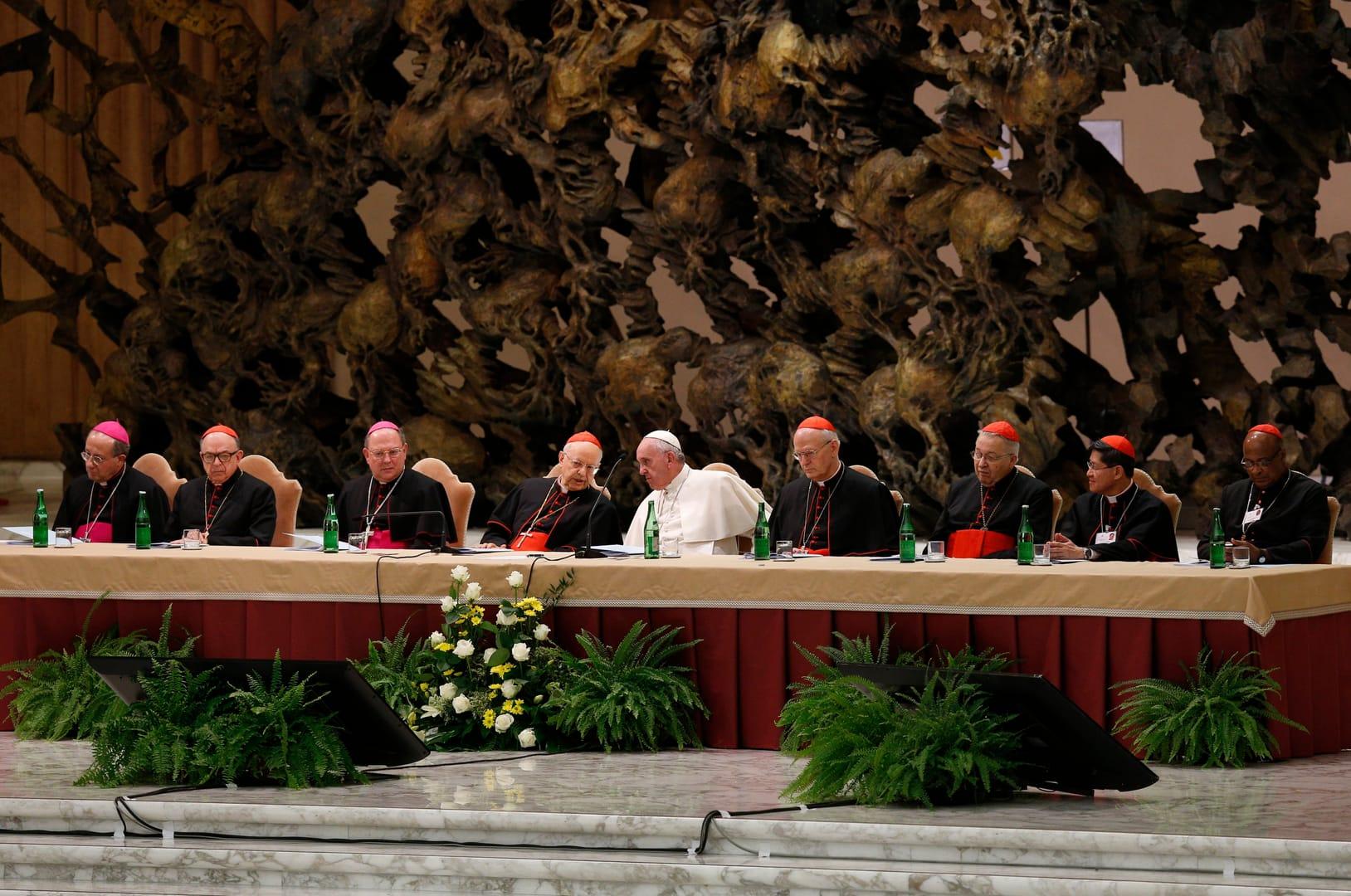ROME — On Tuesday, the Vatican presented the preparatory document for an upcoming ecclesial endeavor: A Synod on Synodality.
Synodality, according to the preparatory document, will grant Catholics the “ability to imagine a different future for the Church and her institutions, in keeping with the mission she has received.”
At the same time, the decision to “journey together” is defined as “a prophetic sign for the human family, which needs a shared project capable of pursuing the good of all.”
The meeting of the Synod of Bishops will take place in October 2023, but the event will officially start next month, with a process of listening, dialogue and community discernment in the local churches.
The Vatican’s schedule for the synod was released on Tuesday during a press conference.
The Synod of Bishops is one of the institutions resulting from the Second Vatican Council. Although the meetings involve religious and laity, only clerics have had a right to vote. This has slowly changed under Pope Francis, and Sister Nathalie Becquart, who as Under-Secretary for the General Secretariat of the Synod of Bishops, will be the first woman with the right to vote in the synod.
Synodality has been a buzz word during Francis’s pontificate, but the concept is still relatively unknown for the average Catholic. This is why a large part of the document released on Tuesday explains the process and its theological roots.
Synodality “is much more than the celebration of ecclesial meetings and Bishops’ assemblies, or a matter of simple internal administration within the Church; it is the specific modus vivendi et operandi of the Church, the People of God, which reveals and gives substance to her being as communion when all her members journey together, gather in assembly and take an active part in her evangelizing mission,” the document says.
The main axes of a synodal Church are communion, participation, and mission, under the guidance of the Holy Spirit and listening to Scripture, it continues.
The Vatican is inviting local churches to conduct a listening process, the guidelines for which were presented in a second document, also released on Tuesday.
Cardinal Mario Grech, who heads the synod office, explained during the press conference that the process will officially begin on Oct. 9 with a Mass celebrated by Pope Francis, with individual dioceses called on start their listening process a week later.
By April 10, 2022, after a process of “prayer and reflection,” local churches will produce a document, that cannot exceed the 10 pages, and send it to Rome. In September 2022 a working document called an Instrumentum Laboris will be published to guide continental and regional synodal assemblies, that will take place before March 2023. The result of these assemblies will also be sent to Rome to help guide the formation of a second Instrumentum Laboris for the actual assembly of the Synod of Bishops in Oct. 2023.
“This journey, which follows in the wake of the Church’s ‘renewal’ proposed by the Second Vatican Council, is both a gift and a task,” the document says.
Among the “objectives” of the path that the Church will begin to undertake is examining how responsibility and power are managed in the Church, “bringing to light and trying to convert prejudices and distorted practices that are not rooted in the Gospel.”
The document also states that the COVID-19 pandemic “momentarily revived the sense that we are a global community, all in the same boat, where one person’s problems are the problems of all,” and that no one is saved alone, while making the already existing inequalities and inequities “explode.”
This situation, which “unites the entire human family” despite the many differences within it, “challenges the Church’s ability to accompany individuals and communities.” However, the document acknowledges, “we cannot hide from the fact that the Church herself must face the lack of faith and the corruption even within herself,” highlighting in particular the suffering experienced by children and vulnerable people due to clerical sexual abuse and other misconduct perpetrated “by a significant” number of priests and religious.
“The whole Church is called to deal with the weight of a culture imbued with clericalism that she inherits from her history, and with those forms of exercising authority on which the different types of abuse (power, economic, conscience, sexual) are grafted,” the document says.
The text also highlights the need to pay particular attention to the voice of women, as well as that of the Christian communities who live in countries where they are a minority and often experience persecution and “not infrequently martyrdom.”
“If, on the one hand, a secularized mentality tends to expel religion from the public space, on the other hand, religious fundamentalism, without respect for the liberties of others, feeds forms of intolerance and violence that are also reflected in the Christian community and in its relations with society,” the document says.
During the press conference, Grech insisted without the Holy Spirit the synod becomes a “game of sides,” and the participation of the “holy people of God” would become an “opinion poll.”
Addressing journalists, Grech asked them not to “constrict the synod” using the mechanism of the “scoop” and sensational news.
“What the Holy Father expects from this Synod is to place the entire Church in a condition to live an authentic synodal experience, undertaking the attitude that matters the most in a synodal Church: Walking together.”
Becquart added, “We are relearning synodality, and one of the main challenges is that, with synodality, you learn by doing.”
“It’s an easy concept to put into words, but not to put into practice, and this is the reason why we’ve written the vademecum; because we heard there was a need for practical guidelines for dioceses to launch this process,” she said.
Follow Inés San Martín on Twitter: @inesanma












